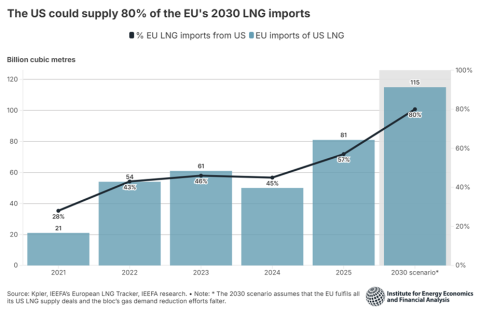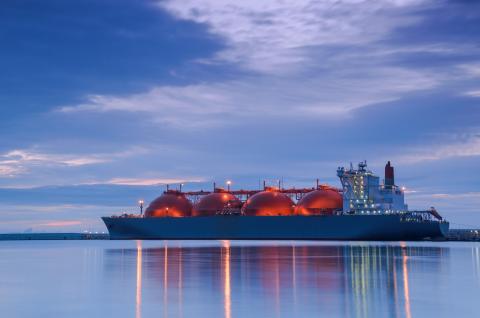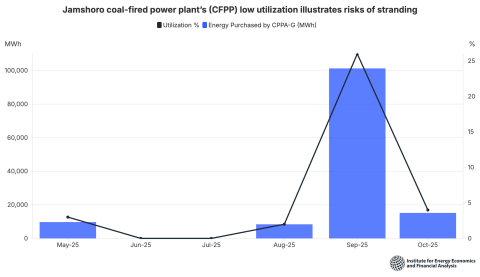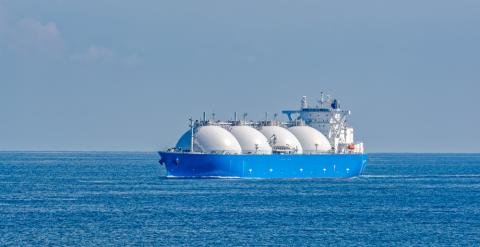LNG market volatility clouds Venture Global forecasts, even with long-term contracts in place
Download Briefing Note
View Press Release

Key Findings
Despite the perceived stability offered by long-term contracts, the LNG export business operates in a highly volatile commodity market.
The market’s uncertainty was underscored by lower-than-expected average fixed liquefaction fees earned by a pair of Venture Global export terminals.
The lower-than-expected figures prompted investors to cut Venture Global shares by 17%, wiping out $4 billion in shareholder value in a little more than a day.
Venture Global’s inability to accurately project results just one month ahead highlights broader challenges in the LNG industry’s capacity to forecast long-term performance.
Introduction
Venture Global reported in early April that the number of LNG cargos shipped during the first quarter of 2025 met its projections, but fees from its Calcasieu Pass and Plaquemines LNG export terminals fell short of the company guidance provided less than a month earlier.
The news of the shortfall proved more interesting to investors than its announcement of the long-awaited start to commercial operations at Calcasieu Pass. The market cut Venture Global’s stock price by 17%, wiping out $4 billion in shareholder value in a little more than a day.
A perceived miss relative to company guidance is always unwelcome news, but the disclosure in Venture Global’s quarterly 8-K report raised two additional red flags for investors. First, the highly volatile global commodity markets impaired Venture Global’s ability to project short-term results. A comparison of the company’s March 6 guidance to its April 3 pre-release of results suggest just seven “potential cargos” severely altered the operating margins anticipated for the first quarter’s results.
Second, the filing revealed that Venture Global’s growing LNG output, which had been seen as stabilizing its financial outlook, may instead increase the company’s risk exposure to turbulent global natural gas or LNG market conditions.















